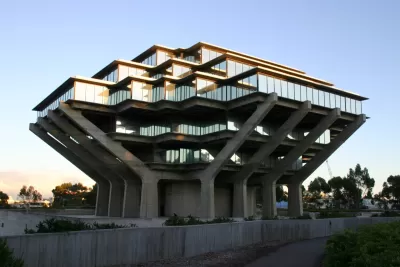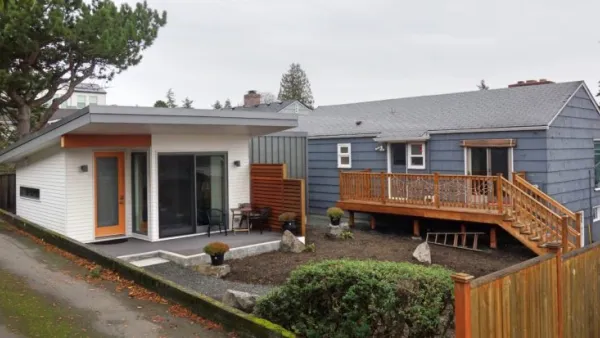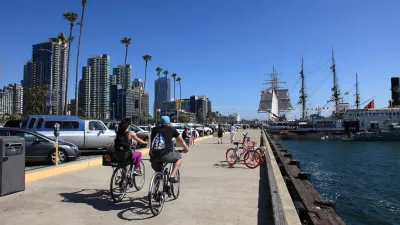Universities do more than teach classes; they can help transform economies and elevate cities to greatness. UC San Diego is banking on it.

Last year, UC San Diego announced it was launching a downtown hub that would be an active partner in transforming San Diego into a hub for the innovation economy.
In fact, according to UCSD Extension Dean and sociologist Dr. Mary Walshok, in the 21st century, universities and research institutions are crucial components to making any city great.
At CityAge: Build the Future, Walshok explained that universities can make cities "magnets" for public and private investment. And the research dollars that universities attract make them natural hubs for talent in all different fields, as well as constant sources of experimentation and innovation in a diverse set of industries.
Great cities have to continuously recalibrate, renew, and reinvent themselves in response to ever-changing demographic, technological, economic, and global imperatives … Without a center or centers of intellectual capital that are actively engaged in understanding and helping to navigate the multiple factors shaping regional futures, big cities—like Phoenix, San Diego, Seattle, or Portland—cannot become great cities.
In addition to teaching languages, providing executive education, and hosting conventions and festivals, the new UC San Diego Urban will help incubate and scale new businesses in order to strengthen diverse economic clusters and build up an innovation ecosystem.
Dr. Walshok's talk is excerpted in The Planning Report.
FULL STORY: New 'UC San Diego.Urban' Looks To Spur City & University Innovation

Planetizen Federal Action Tracker
A weekly monitor of how Trump’s orders and actions are impacting planners and planning in America.

Maui's Vacation Rental Debate Turns Ugly
Verbal attacks, misinformation campaigns and fistfights plague a high-stakes debate to convert thousands of vacation rentals into long-term housing.

Restaurant Patios Were a Pandemic Win — Why Were They so Hard to Keep?
Social distancing requirements and changes in travel patterns prompted cities to pilot new uses for street and sidewalk space. Then it got complicated.

In California Battle of Housing vs. Environment, Housing Just Won
A new state law significantly limits the power of CEQA, an environmental review law that served as a powerful tool for blocking new development.

Boulder Eliminates Parking Minimums Citywide
Officials estimate the cost of building a single underground parking space at up to $100,000.

Orange County, Florida Adopts Largest US “Sprawl Repair” Code
The ‘Orange Code’ seeks to rectify decades of sprawl-inducing, car-oriented development.
Urban Design for Planners 1: Software Tools
This six-course series explores essential urban design concepts using open source software and equips planners with the tools they need to participate fully in the urban design process.
Planning for Universal Design
Learn the tools for implementing Universal Design in planning regulations.
Heyer Gruel & Associates PA
JM Goldson LLC
Custer County Colorado
City of Camden Redevelopment Agency
City of Astoria
Transportation Research & Education Center (TREC) at Portland State University
Jefferson Parish Government
Camden Redevelopment Agency
City of Claremont





























